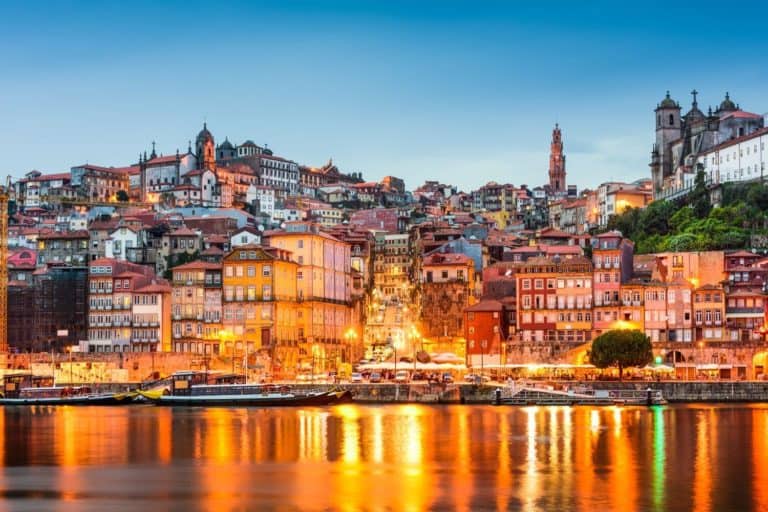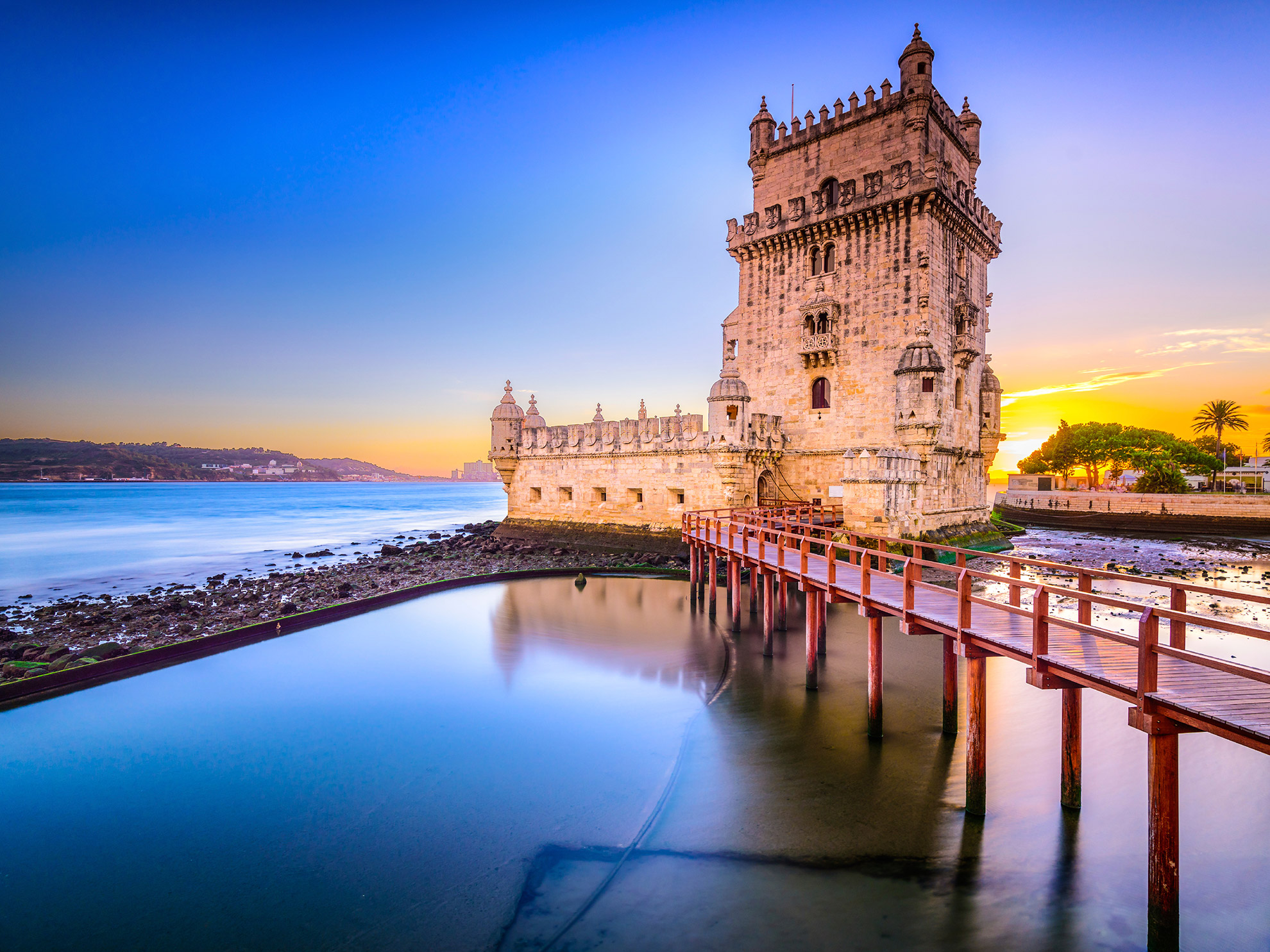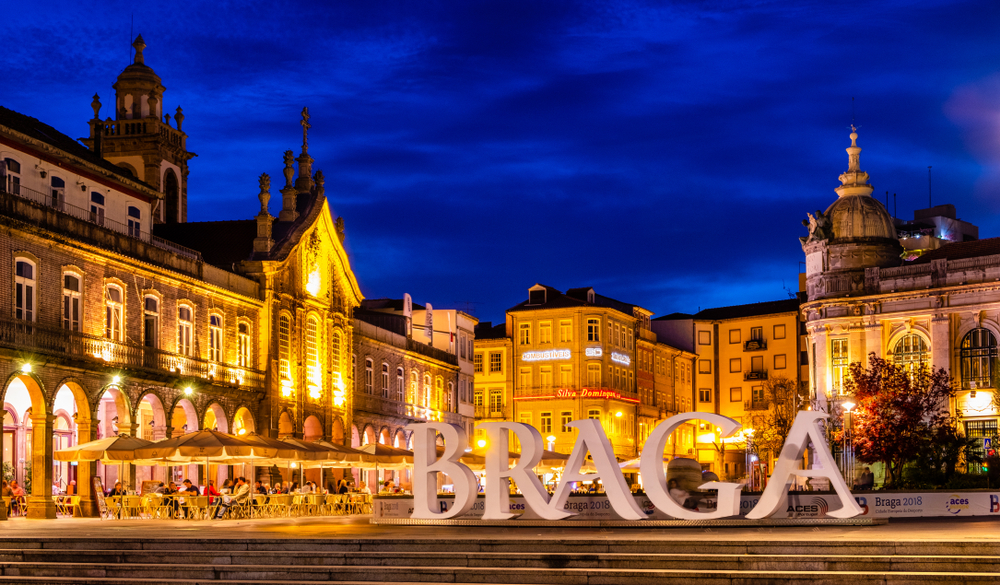PORTUGAL
Portugal is a country on the Iberian Peninsula, located in south-western Europe. It is the western most country of mainland Europe and is bordered by the Atlantic Ocean to the west and south and by Spain to the north and east. The Atlantic archipelagos of the Azores and Madeira are also part of Portugal.
The land within the borders of today's Portuguese Republic has been continuously settled since prehistoric times.
Some of the earliest civilizations include Lusitanians and Celtic societies. Incorporation into the Roman Republic dominions took place in the 2nd century BC. The region was ruled and colonized by Germanic peoples from the 5th to the 8th century. The Muslim Moors arrived in the early 8th century and conquered the Christian Germanic kingdoms, eventually occupying most of the Iberian Peninsula. In the early 1100s, during the Christian Reconquista, Portugal appeared as a kingdom independent of its neighbour, the Kingdom of León and Galicia. In a little over a century, in 1249, Portugal would establish almost its entire modern-day borders by conquering territory from the Moors.
During the 15th and 16th centuries, with a global empire that included possessions in Africa, Asia and South America, Portugal was one of the world's major economic, political, and cultural powers. After the Portuguese Colonial War and the Carnation Revolution coup d'état in 1974, the ruling regime was deposed in Lisbon and the country handed over its last overseas provinces in Africa.
Portugal is a developed country, has a high Human Development Index and is among the world's 20 highest rated countries in terms of quality of life, although having the lowest GDP per capita of Western European countries. It is a member of the European Union (since 1986) and the United Nations (since 1955); as well as a founding member of the Organisation for Economic Co-operation and Development (OECD), North Atlantic Treaty Organization, Community of Portuguese Language Countries (CPLP), and the European Union's Eurozone. Portugal is also a Schengen state.
According to the Global Peace Index, Portugal is among the top ten most peaceful countries in the world.
Total area 92,212 km²
Population 10,352 million (2021 estimate)
Population Density 112,2/km²
GDP total $432.1 billion, per capita: $42,067 (2022 estimate)
Human Development Index (HDI) 0.866 (38nd)
Capital Lisbon
Currency Euro €
Time zone GMT
“Portugal is among the top ten most peaceful countries in the world”


BRAGA
Braga is a city and a municipality in the northwestern Portuguese district of Braga, in the historical and cultural Minho Province. The city had 137,000 inhabitants as of 2012, and the municipality, which includes 37 civil parishes has a resident population of 181,494 inhabitants (in 2011), representing the seventh largest municipality in Portugal (by population). Its area is 183.40 km². Its agglomerated urban area extends from the Cávado River to the Este River. It is the third-largest urban centre in Portugal
(after Lisbon and Porto).
The city was the European Youth Capital in 2012. It is host to the archdiocese, the oldest in Portugal.
Under the Roman Empire, known as Bracara Augusta, the settlement was centre of the province of Gallaecia. Braga is a major hub for inland Northern Portugal.
Braga has a Mediterranean climate similar to other cities in the northwest Iberian Peninsula' except for having significantly hotter summer temperatures due to being some distance from the ocean: the absolute maximum is as much as 5 °C (9 °F) higher than neighbouring A Coruña or Santiago de Compostela.
The highest recorded temperature is 41.3 °C (106.3 °F) while the lowest recorded is −6.3 °C (20.7 °F). The climate is affected by the Atlantic Ocean, which influences westerly winds that are channeled through the region's valleys, transporting large humid air masses. Consequently, the climate tends to be pleasant with clearly defined seasons. The air masses have the effect of maintaining the relative humidity around 80%: annual mean temperatures hover between 12.5 °C (54.5 °F) and 17.5 °C (63.5
°F). Owing to nocturnal cooling, frost usually forms frequently between three and four months of the year (about 30 days of frost annually), and annually the region receives 1,659 millimetres (65.3 in) of precipitation, with the major intensity occurring between fall/winter and spring.
“Visit Braga is to travel in time within modernity”

